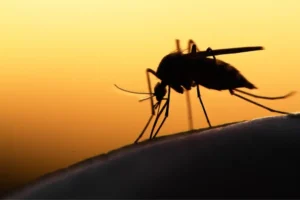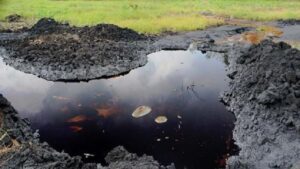
2022 World Wetlands Day: Nigeria ecosystems lost to population pressure, poverty, deforestation, others — Ikeazor
By Gloria Akudoro, Abuja
Minister of State for Environment, Chief Sharon Ikeazor, on Thursday stated that population pressure, poverty, deforestation, intensive cultivation, oil, gas and industrial waste contamination, coastal and marine erosion, overgrazing and climate change are all threatening the nation’s wetland ecosystems.
She said, “The destruction of wetlands is therefore a matter of concern as they are some of the most productive habitats on the planet. Over time, over population, climate change as well as response to the need for infrastructural development have contributed to the degradation of wetland ecosystems.”
Ikeazor disclosed this at the 2022 World Wetlands Day celebration held on the 3rd February, 2022 at Baturiya Wetland, Hadejia, Jigawa State with its theme: ‘Wetland Action for People and Nature.’
“This important component of the ecosystems is being lost at an alarming rate and we must all recognise the need for urgent intervention.
“The Ramsar Convention has designated 2nd of February of every year to celebrate World Wetlands Day to promote public awareness of the importance of wetlands to environmental sustainability as well as human wellbeing,” she said.
The Minister further buttressed on the occasion, saying the celebration is in pursuit of the Convention’s mission of ensuring the Conservation and Wise Use of all Wetlands through local and national actions and international cooperation, as a contribution towards achieving Sustainable Development globally.
“The significance of wetlands as a unique component of our ecosystems cannot be overemphasised. They are rich in biodiversity and play a number of functions, including water purification, water storage, processing of carbon and other nutrients, stabilisation of shorelines, and support of plants and animals. Under an effective and sustainably managed healthy ecosystem, they also play a vital role in addressing socio-economic challenges particularly through multi-sectoral job creation for millions of job seekers in sectors such as forestry, fisheries, agriculture, and tourism.
“Many coastal and inland wetlands are popular locations for tourism and recreational activities such as swimming, boating, fishing, camping, annual festivals and bird watching thus offering income opportunities for local communities.
“Wetlands are noted for their water flows regulation function and recharge of surface and groundwater. They act as natural reservoirs that store water during raining season and release it during dry season for domestic purposes and dry season farming.
“The resources attributed to the wetlands in Nigeria are highly valuable; they contain fish, reptile species, mammal species, amphibian species, and bird’s species. Nigeria wetlands endowment stands out in Africa being one of the internationally recognised wetlands in the world. Majority of these wetlands are found in Niger Delta, Benue and Chad Basin and along the entire Coast of Nigeria. While eleven (11) of them have been designated as Ramsar Sites.
“The Hadejia-Nguru wetland is the first wetland recorded as a Ramsar site. It is a wide expanse of floodplain wetlands, which is situated in Jigawa and Yobe Sates in the North-East Geopolitical zone of Nigeria,” she stressed.
As part of a call to take action to save the nation’s Wetlands from disappearing, Ikeazor said the Federal Government has prioritised the livelihood enhancement of the local people living around wetlands.
“We are conscious of the effects of climate change on their livelihoods. This is evidential in the livelihoods component of our intervention in some of the wetland ecosystems in the country.”
She said, “Under the ongoing intervention named ‘Sustainable Management of Selected Critical Ecosystems,’ Hadejia-Nguru Wetland was reforested with four (4) hectares of Fruit/Tree Orchard of economic species.”
She stressed that the project is being extended to other parts of the country “as our intervention is focused on the riparian communities of Maladumba Lake and Forest Reserve Wetland in Bauchi State and Oguta Lake Wetland in Imo State.
“The Federal Government has just secured a credit from the World Bank to implement Agro-Climatic Resilience in Semi-Arid Landscapes (ACReSAL) which is intended to help improve sustainable management of drylands at scale in the northern Nigeria.
“The project aims to restore Critical Ecosystems including Hadejia-Nguru wetlands and will be implemented over a period of six years,” she hinted.
The Minister also revealed that President Buhari recently approved the establishment of 10 additional National Parks including Hadejia Wetland Game Reserve which will now be known as Hadejia Wetlands National Park.
“This implies that, the country’s protected areas have been expanded to conserve our biodiversity, enhance ecosystem resilience, mitigate climate impacts, and support socio-economic development of the people. This expansion also contributes to the attainment of Sustainable Development Goals, Post-2020 Global Biodiversity Framework Goals, Nationally Determined Contributions, Global Goals for Forests, and others.
“We commit to International Agreements, Conventions, Treaties in pursuance of Global Agenda towards sustainable environment, climate solution and a healthy planet. We strongly support Agenda 30X30 of the Global Biodiversity Framework which seeks to designate 30% of the world oceans and lands for sustainable development by year 2030. Two (2) Forestry Reserves in Bayelsa State have been designated as Nigeria’s Marine Protected Areas (MPAs) while the process of taking over and handing over by the Federal Government has commenced. Implementation of the MPAs serves as an opportunity to intensify efforts towards better and more effective management of the critical ecosystems.
“We are cognizant of the key role sensitization and awareness creation plays in ensuring critical ecosystems, such as wetlands are conserved, protected and restored. The celebration of World Wetlands Day as being witnessed here today attests to this. However, this responsibility does not lie on Government alone. Every one of us including Government, Non-Government, Private Sector, Academic, Corporate Organizations, Students and Individuals are all stakeholders in this assignment,” she explained.
Ikeazor therefore acknowledged the Governor of Jigawa State, Alhaji Muhammad Badaru Abubakar, for his “complementary efforts that have hugely facilitated the achievement of Federal Government’s programmes and initiatives in your State which has impacted on the lives of the people,” urging Nigerians to join, making sure FG achieves a sustainable environment and safer planet.
“Let us all strive to be part of the solutions for nature by being powerful agents of positive change for people and planet,” the Minister said.



